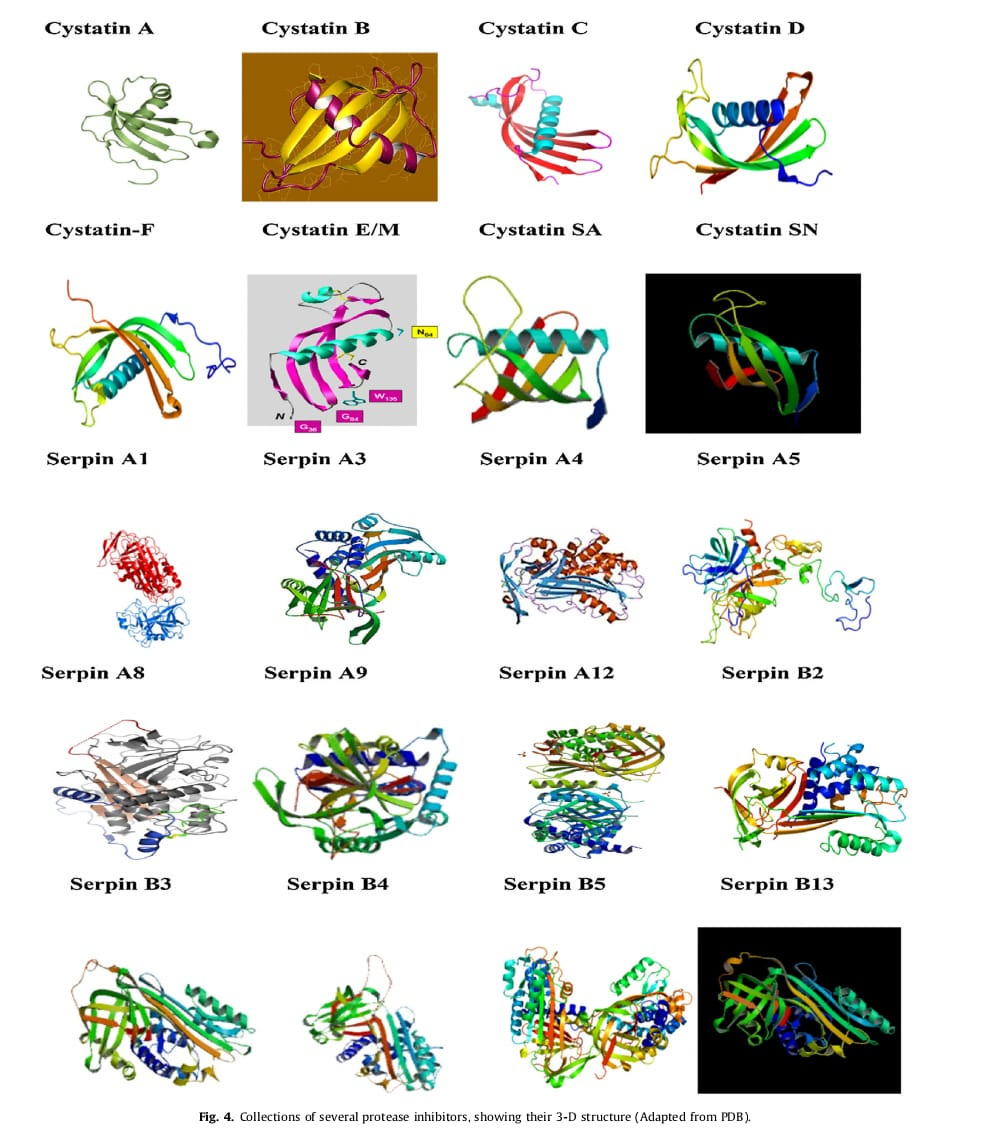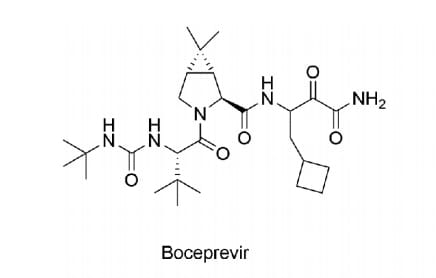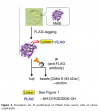Protease inhibitors cocktail
As we know that the living cell consists of many enzymes. Some of them are protease in nature which can be able to degrade all the proteins within the cell in an uncontrolled manner. These proteases include metalloproteases, aspartic acid proteases, serine proteases, and also are in the form of aminopeptidases. Basically, within the cell, there is protein translation and degradation that occur side by side. The old organelle or proteins which are present within the cells are first degraded with the help of these proteases enzymes into their constituents including amino acids, or peptides. After that these amino acid residues are used by ribosomes for the translation of new proteins. So, this protein regulation is controlled via proteases or peptides present within the living cell. Some of these proteases are present within the vesicles called lysosomes which only target specific protein molecules which come in contact with them, while some proteases are present in an inactive form. These inactive proteases undergo their actions upon converting into the active form. As the cell lysis occurs, the regulation related to protein translation and its degradation becomes disturbed. This will lead to the activation of the protease enzymes that continue protein degradation. But for experimental purposes, these proteases are not suitable to be present in the lysate because of their protein degradation ability, so some kind of inhibitors is necessary so that they can disrupt the functions of these proteases’ enzymes. Scientists used differently for this purpose. A protease inhibitors cocktail is a mixture of different kinds of protease inhibitors. There are different types of protease inhibitors present in the cocktail according to the required concentration that depends upon the type of cell which is to be lysate and the application of the inhibitors. Some kinds of protease inhibitors cocktail are composed of the type of inhibitor that can only inhibit one kind of protease while others consist of many kinds of inhibitors that inhibit the activity of various proteases. This cocktail has different types of proteases inhibitors like bacterial proteases inhibitors, which include Bestatin, pepstatin A, etc. On the other hand, Leupeptin is additionally present in the cocktail for the mammalian type of proteases enzymes. We have discussed earlier that protease inhibitors are of major four categories that include, aspartate, serine, Metallo, and cysteine. As these proteases are essential for the normal regulation of proteins for essential functions of the cells that include, cell growth, fertilization, immune system, digestive functions, etc. And the inhibitors for these proteases can be used as a therapeutic agent for the management of various kinds of diseases like viral problems (i.e. HIV) fungal infections, parasitic, cardiovascular, and neurodegenerative disorders (for example Alzheimer’s disease). Also commercially there are many numbers of protease inhibitors that are designed for the particular protease to halt the protease function to control the progression of disease like an inhibitor of HIV-1 protease.

Figure 1:Three dimensional structures of different protease inhibitors
As we have discussed earlier that different types of cells have different types of proteases, so these protease enzymes required a different type of inhibitors for the inhibitory purpose of protein degradation. Researchers use protease inhibitors cocktail to inhibit the proteases enzymes to study Toxoplasma gondii tachyzoites. The study says that the treatment of the toxoplasma gondii tachyzoites with the host cell hepG2 with the protease inhibitors cocktail is an effective way to inhibit the serine and cysteine proteases. They also suggested that this proteases inhibitors cocktail is the most reliable way that the use single proteases inhibitors as it works with combined therapy. They also found that the PIC can also change the structure of tachyzoites and effects their organelles. This will in return prevent the invasion of tachyzoites into the host cells. It not only disrupts the invasion ability but also affects its multiplication ability when it enters the host cell and its survival within the cell. Also, it is cost-effective that the use of single protease inhibitor.
Protease inhibitors cocktail consists of the many proteases inhibitors that depend on the cell type of the body and also depend upon the type of organism as the bacteria, fungi, viruses, etc. have different types of proteases that require different inhibitors for their protein degradation inhibition. Studies have also supported the use of protease inhibitors cocktails as a therapeutic agent for infectious disease management. As we know that protease enzymes are present in all types of cell and pathogenic microorganisms for the regulation of their homeostasis. As there is dysregulation in these protease enzymes, this will lead to a high incidence of infectious diseases in humans. Also, these protease enzymes have a bio-catalytic activity that will influence the pathogenicity and virulence of these pathogenic microorganisms. So the use of protease inhibitors as the therapeutic step is of great concern but it requires more research to do.
This PIC can also be used to reduce the occurrence of AIDS. Inhibitors for the HIV-1 protease are specially designed for this purpose to stop the protease activity that will aid in the further progression of AIDS. The study suggests that the combination of the protease inhibitors cocktail along with the 2 nucleoside analog can lessen the risk of AIDS-associated sickness and death.

Figure 2:Structure of protease inhibitor of HIV (Boceprevir)
Similarly, studies also suggest the use of protease inhibitors as therapeutic agents for the treatment of cancer or cancer therapy. As we know that cancer is the second Major cause of death. Different studies conducted on cancer pathogenesis revealed that protease enzymes play an important role in cancer progression. They explain that the protease enzymes are used by the tumor cells for their growth due to their proteolytic activity. Hence this proteolytic activity can be masked by the use of proteases inhibitors cocktail as they can inhibit the action of proteases enzymes. Protease inhibitors cocktail has a variety of. Serine, cysteine, metalloproteases, aspartic acid, glutamate, etc. types of protease inhibitors. They can inhibit these kinds of proteases that can alleviate cancer cells.













コメント